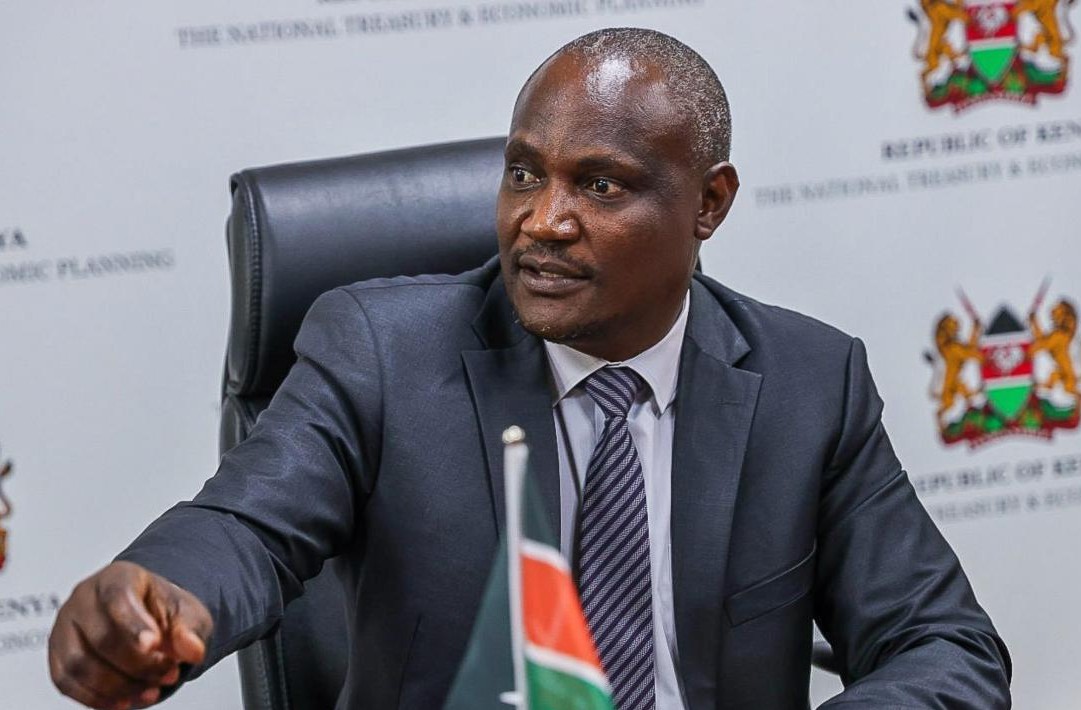

National Treasury Cabinet Secretary John Mbadi has accused several state agencies of straying from their core mandates by investing heavily in government securities instead of delivering on public service.
Appearing before the Senate Standing Committee on Devolution and Intergovernmental Relations, Mbadi expressed concern, saying some parastatals are treating government funds as a source of profit rather than using them to execute public programs.
Mbadi said that agencies like Unclaimed Financial Assets Authority (UFAA) have been collecting funds from Kenyans and instead of re-uniting them with the owners, opt to channel them to state securities.
“It is disturbing to see state corporations that are supposed to deliver services opting to divert resources to treasury bonds. That is not their job. We must restore focus to their actual mandates,” Mbadi told the lawmakers.
Responding to Kisii Senator Richard Onyonka, on the state of parastatal reforms, Mbadi specifically called for urgent reforms in UFAA warning that the agency may have lost sight of its original mission.
“The purpose of UFAA is not to hoard wealth in the Treasury bonds but to reconnect unclaimed assets with rightful owners. There are people living in poverty while their parents’ savings sit idle in accounts they don’t know exist,” he said.
He revealed that the government is in the process of recruiting a new CEO to lead reform efforts within the institution.
“Once the new leadership is in place, we must restructure the agency to ensure it delivers on its mandate. This should not be another fund-accumulation body,” said the CS.
According to Mbadi, at least 18 agencies are on the chopping block as the government moves to streamline public service.
“Some of these institutions are liabilities. They duplicate roles, have bloated staff, and have deviated from their original purpose. We are restructuring them—some will be dissolved, others merged, and those with devolved functions transferred to county governments,” Mbadi told the committee chaired by Wajir Senator Mohamed Abbas.
The CS singled out parastatals in the water and irrigation sectors as particularly problematic, with overlapping roles leading to duplication and wastage.
“You find one agency in charge of water harvesting and another for irrigation. Why are they not working together? Why not consolidate them?” asked the CS
The committee also raised concerns about the legal confusion surrounding the fate of 18 parastatals whose functions were reportedly devolved to counties without accompanying resources.
“Where are we with the parastal reforms, are we making any progress,” asked Marsabit Senator Mohamed Chute.
Mbadi acknowledged the issue, saying the government was awaiting a full cost assessment before allocating resources for the devolved functions starting in the 2026/27 financial year.
“The Intergovernmental Relations Technical Committee (IGRTC) is handling the transition. We have identified which functions to devolve, but the funding will only come after a proper costing exercise is complete,” the CS said.
“We feel they should not operate. But we still look at how best to, if there are some that are going to discharge their functions at the counties, how best then to facilitate that, have enough resources for them to run in those counties. But most of them, apart from the personnel, the volunteers, some of them just disappear.”
He promised a legal review to determine whether some of the assets and personnel of these parastatals should be transferred to counties or restructured under inter-county mechanisms.
Mbadi described Kenya’s parastatal ecosystem as bloated and inefficient, with many agencies created through politically motivated legislation that served narrow interests.
“We are cleaning house. You find a state agency with a vague mandate, funded by donors, yet doing little to justify its existence. Some were established during a wave of unnecessary lawmaking. Now, we have to untangle the mess.”












